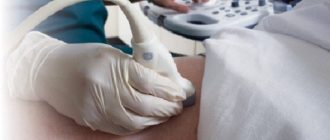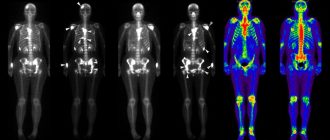Pathologies of the male genitourinary system can often occur without any symptoms in the first stages. A PSA (prostate specific antigen) test can help identify them. This is a specific protein secreted by the prostate, most of it is contained in the seminal fluid, but some can enter the bloodstream. With the development of organ dysfunction, this part will increase, which will make it possible to diagnose diseases.
In the blood, protein is contained in 2 forms - free (15%) and bound (85%). With the development of cancer, this ratio will change towards an increase in the associated ratio. A blood test for prostate specific antigen involves detecting the protein in both forms and comparing their proportions.
In order to correctly donate blood for prostate PSA, you must adhere to strict rules 2 weeks before the examination to eliminate the possibility of false results.
Indications for PSA testing
A prostate PSA blood test is prescribed in the following cases:
- Diagnosis and control of treatment of prostatitis.
- Suspicions and monitoring of treatment for adenoma.
- Diagnosis and monitoring the dynamics of cancer treatment.
- Routine examination of men over 40 years of age.
Contraindications
After certain medical tests and procedures, prostate specific antigen testing is contraindicated. Among them:
- After a prostate biopsy, you can donate blood for PSA no earlier than 4-6 weeks later.
- Palpation of the prostate (not earlier than 2 weeks).
- Surgery on the gland using a laser (4-6 weeks).
- Ergometry.
- Cystoscopy (has a minor effect on the result, but it is recommended to abstain for 2 weeks).
- TRUS (not earlier than 2 weeks).
- Colonoscopy.
- After transurethral resection of the prostate (TURP), testing should be done no earlier than 6 months after surgery.
How to Prepare for a PSA Test
You should prepare for the analysis 15-20 days before it is carried out, because the results of the examination depend on many factors and may be distorted. Preparation for a prostate PSA test includes the following restrictions:
- In 2-3 weeks, stop using drugs to increase potency or testosterone.
- For 2 weeks, refuse any procedures affecting the organ (palpation, TRUS, massages).
- If there is a catheter in the bladder, it must be removed 2 weeks before the examination.
- Follow a dietary diet for 2 days before taking the test (avoid fried, spicy and smoked foods, stop drinking alcohol and coffee).
- Avoid sexual intercourse for 2-3 days before the examination.
- Avoid physical activity the day before donating blood (including cycling, exercise, horse riding).
- Quit smoking 1-2 days before the test, if impossible - at least 2 hours.
- Avoid stress for 1-2 days.
- Stop eating 12 hours before. Avoid drinking any drinks, limit your water intake (a small amount of pure non-carbonated water is allowed).
- Try to remain calm when donating blood (anxiety or irritability can affect the results).
How to donate blood for PSA
The analysis is taken from a vein; the required blood volume is from 5 to 10 ml. The examination can be carried out at any blood collection center. Often the procedure is prescribed for the first half of the day, although the daily fluctuation of the indicator depends little on this. When taking blood for testing, the patient is in a sitting position; if there is anxiety or dizziness, the collection can be carried out in a supine position.
If conflicting results are obtained, the procedure can be repeated after some time. The test results are subject to many factors, so PSA is not a universal diagnostic procedure.
Interpretation of PSA results
The normal PSA level in the blood is 2.5-4 ng/ml. However, its concentration increases with age, so it is customary to differentiate the norm in accordance with the age indicator:
- up to 49 years - up to 2.5 ng/ml;
- 50 – 59 years – 2.5-3.5 ng/ml;
- 60 – 69 years – 3.5-4.5 ng/ml;
- after 70 years – 4.5-6.5 ng/ml.
Values up to 10 ng/ml are usually called the “gray zone”. In this case, making a decision about the need for a biopsy is difficult. Therefore, the ratio of free PSA to total is compared; normally it is 0.15. If the ratio is lower or if the value of prostate-specific antigen in the blood is above 10 ng/ml, a prostate biopsy is indicated.
With age, the prostate increases in size due to benign growth, therefore, for more accurate results, an indicator such as density is determined - the ratio of the PSA value to the volume of the gland. A value not exceeding 0.15 ng/ml/cm is considered normal. 3
During regular examination, the rate of change in PSA is considered valuable data; it should not exceed 0.75 ng/ml/year.
In addition to diagnosing oncological processes, the PSA level is used in treatment. To do this, its indicator is measured after various procedures. There should be a noticeable decrease in it, which will indicate the effectiveness of the treatment. An increase will indicate a relapse of the disease.



